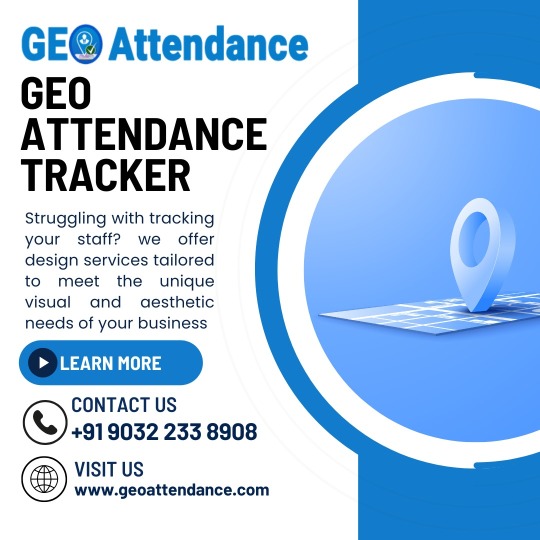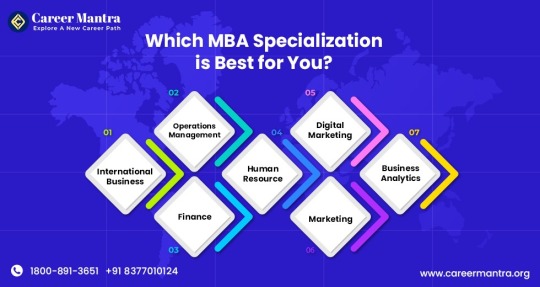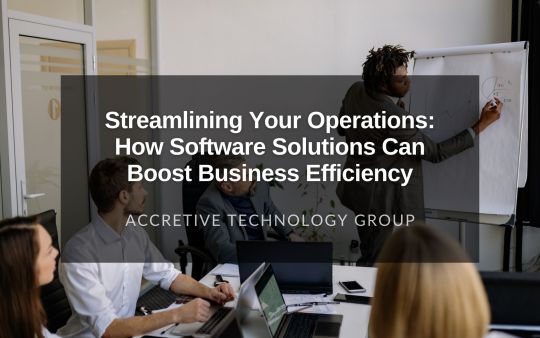#Employee productivity HRMS
Explore tagged Tumblr posts
Text
Top HRMS Features to Boost Employee Engagement and Productivity
Top HRMS features are designed to enhance employee engagement and productivity by creating a seamless and supportive workplace experience. Self-service portals empower employees to manage personal information, access pay stubs, and track time off without HR intervention, saving time and increasing autonomy. Performance management tools within an HRMS allow for continuous feedback, goal-setting, and progress tracking, which keep employees motivated and aligned with company objectives. Additionally, automated learning and development modules provide easy access to training resources, supporting employee growth and skills enhancement. With engagement surveys and analytics, HRMS platforms enable companies to gather real-time insights into employee satisfaction, helping HR teams make informed improvements. Together, these features contribute to a workplace that is both efficient and employee-centered, fostering engagement and boosting productivity.
More info: https://ahalts.com/solutions/hr-services
#HRMS features for engagement#Employee productivity HRMS#Self-service HRMS benefits#HRMS for employee engagement#Performance management in HRMS#HRMS tools for productivity#Learning and development HRMS
0 notes
Text

GeoAttendance offers cutting-edge attendance tracking and workforce management solutions using GPS technology. Streamline employee time tracking, monitor remote teams, and improve productivity with our user-friendly mobile app and software. Discover seamless solutions for businesses of all sizes.
#StreamlineFM#FacilitiesManagement#FMTech#PropTech#BuildingMaintenance#SmartBuildings#WorkplaceSolutions#Efficiency#Productivity#Innovation#GeoAttendance#HRManagement#AttendanceTracking#EmployeeEngagement#WorkforceManagement#HRTech#EmployeeProductivity#hrm software#hrms payroll software#hrms solutions#hrms systems#hrms benefits#businessefficiency#business#employee management software
0 notes
Text
"How uKnowva HRMS Can Help You Manage Special Work Arrangements During Festival Seasons"
The festive season is a time for celebration, family gatherings, and cultural traditions. However, for businesses, it can also be a period of disruption, with employees requesting time off or needing more flexible work arrangements. Balancing the needs of the company with the personal and cultural needs of employees can be challenging, especially when trying to maintain productivity and morale. This is where uKnowva HRMS can make a significant difference.
uKnowva HRMS offers a comprehensive solution for managing special work arrangements during festival seasons, providing tools that streamline processes like leave management, shift adjustments, remote work facilitation, and employee engagement. Let’s explore how this platform can help you manage these challenges effectively.
1. Streamlined Leave Management
During festival seasons, there’s often a surge in leave requests, which can be difficult to track and manage manually. uKnowva HRMS simplifies this process by automating leave management. Employees can easily apply for leave through the self-service portal, and managers can quickly approve or decline requests based on team needs and overall staffing levels.
Key features include:
Real-time leave tracking: HR and managers can view up-to-date information on leave balances, pending requests, and leave history.
Customizable leave policies: The system allows businesses to create specific leave policies tailored to festival seasons, such as additional leave days or holiday leave quotas.
Automated leave approvals: Approval workflows can be set up to streamline the process, ensuring that managers are notified of requests instantly.
By centralizing and automating leave management, uKnowva HRMS reduces the administrative burden on HR teams and ensures that no employee request is overlooked.
2. Flexible Shift and Schedule Adjustments
In addition to time off, many employees may require adjusted work hours or shifts during festivals to accommodate personal or religious celebrations. uKnowva HRMS makes it easy to implement flexible work arrangements by offering:
Shift planning and management tools: Managers can create, adjust, and assign shifts within the system, allowing for the creation of festival-specific work schedules.
Automated notifications: Employees are notified of any shift changes or schedule updates, ensuring clear communication during the busy festive period.
Work-from-home or hybrid options: If your company offers remote or hybrid work arrangements, uKnowva HRMS allows you to track and manage who is working from home, in the office, or on-site.
This flexibility not only helps employees balance their personal and professional responsibilities during festivals but also ensures that the business continues to run smoothly.
3. Enhanced Employee Engagement
Festival seasons are a great opportunity to boost employee morale and engagement, especially when companies show flexibility and understanding. uKnowva HRMS offers features that support employee engagement, such as:
Internal social networks: The platform’s social features allow employees to communicate, share festive greetings, or participate in virtual celebrations, creating a sense of community even in hybrid or remote settings.
Recognition and rewards: HR teams can use the system to recognize employees who go above and beyond during the busy festive period, either through shout-outs, badges, or points-based rewards.
Feedback tools: uKnowva HRMS allows employees to provide feedback on their experience with special work arrangements, helping the company fine-tune its policies for future festive seasons.
By fostering a supportive and inclusive environment during festivals, companies can improve employee satisfaction, which often leads to increased productivity.
4. Accurate Attendance and Productivity Tracking
Tracking attendance and productivity during the festive season can be a challenge, especially if employees are working remotely or on adjusted schedules. uKnowva HRMS offers robust tools for tracking attendance, including:
Biometric integration: For on-site employees, the system can be integrated with biometric devices to track attendance in real time.
Remote attendance tracking: For remote or hybrid workers, employees can log in and out via the platform, ensuring accurate tracking of work hours.
Productivity analytics: Managers can monitor team productivity levels, even during periods of special work arrangements, and identify any areas that need support.
This level of visibility ensures that the business continues to operate efficiently, even when employees are on flexible schedules.
5. Automated Policy Enforcement
Festival seasons often require special policies, such as additional holidays, flexible hours, or extended remote work options. With uKnowva HRMS, HR teams can automate the implementation and enforcement of these policies, ensuring that all employees are treated fairly and that the rules are consistently applied.
For example, you can:
Set festival-specific work policies: Adjust working hours, leave entitlements, or bonus structures during the festive period, and the system will automatically enforce these changes.
Ensure compliance: uKnowva HRMS tracks compliance with company policies, ensuring that all special work arrangements align with legal requirements and internal guidelines.
By automating these processes, HR can focus on supporting employees and maintaining operations, rather than managing the administrative workload.
Conclusion: Make the Festive Season Stress-Free with uKnowva HRMS
Managing special work arrangements during festivals can be a complex task, but with uKnowva HRMS, businesses can streamline processes, improve employee engagement, and ensure that productivity remains high. Whether it’s handling leave requests, adjusting work schedules, or fostering a positive workplace culture, uKnowva HRMS provides the tools you need to manage the festive season efficiently.
By offering flexibility and support to employees during these important times of the year, businesses can not only maintain operations but also strengthen relationships with their workforce, leading to higher morale, better retention, and a more engaged team.
#hrms solutions#employee engagement#productivity tracking#hr management#hybrid work#flexible environment
0 notes
Text
Human Resource Management Strategies for Promoting Employee Health and Safety

Promoting employee health and safety is a critical aspect of Human Resource Management (HRM) that contributes to employee well-being, productivity, and organizational success.
Clearly communicating health and safety policies to all employees ensures that policies are easily accessible, well-understood, and regularly updated to reflect current best practices and regulations.
On the other hand providing comprehensive training on health and safety procedures, including emergency protocols, proper use of equipment, and guidelines for maintaining a safe work environment. Regularly update employees on any changes in safety protocols.
A secure environment enhances productivity and is the right of all employees.
Here is the article for you to know effective strategies for promoting employee health and safety
0 notes
Text
#employee scheduling app#employee engagement#time management#productivity#business growth#cloud based hrms#new hrms
0 notes
Text


human resources management pt.3
this post is the third part to my little business exam revision series. the reason that i am making these posts is to study for my exam in a more enjoyable way.
part 1 | part 2 | part 4
today's post (written 27-05 and scheduled) focuses on pay and remuneration, performance appraisal, and recruitment and selection.
pay and remuneration
these two items make up one hrm topic. pay (generally) refers to wages, salaries, bonuses commissions, incentives, etc.. remuneration refers to monetary and non-monetary benefits such as sick leave and gym reimbursement. the purpose of pay and remuneration is to attract and retain employee talent, as well as to boost productivity and foster employee satisfaction.
let's focus on one example from pay and one from remuneration.
one example of pay includes commission, which refers to monetary incentives awarded to employees for hitting sales targets or other goals. the benefits of commission include increased employee motivation and potentially higher pay. however, customer satisfaction may be affected if employees are too focused on earning commission.
for remuneration, an example is paid time off. vacation days, sick leave, and other types of leave promote work-life balance and employee wellbeing. this may be costly for a smaller business, so remuneration packages must be well thought out and other departments (finance, marketing) must be worked with to achieve a well-rounded final package.
performance appraisal
performance management is a continuous process of identifying, measuring and aligning performance with the strategic goals of an organization. features of this hrm topic include clear goal alignment, continuous feedback, performance metrics, and KPIs (key performance indicators).
an advantage of performance appraisal is an increase in employee engagement because an employee's productivity directly correlates to their engagement experience. moreover, when performance appraisal is done well, businesses see a decrease in attrition rates. high employee turnover results in greater costs of hiring, lower productivity, and utilization of resources and time to train new people according to company objectives. performance appraisal works to combat this and reduce the cost of hiring.
performance appraisal may provide a challenge for companies since the basic system is to try and create a one-size-fits-all model. this simply does not work. employees might also feel demotivated due to perceived unfair evaluations during appraisal.
recruitment and selection
this is the largest hrm topic so far - and can be broken down into three main parts. internal recruitment, external recruitment, and the selection process.
internal recruitment is the action of filling roles through promotion and considering current employees to fill gaps. a business may choose to recruit internally because it can be cheaper, and quicker, and the business already knows the employee. this means that the employee is already familiar with the business and its operations. however, internal recruitment creates new vacancies - then, external recruitment must come in.
external recruitment refers to hiring employees who are not already in the company. this occurs when companies are looking for new perspectives/ideas, increased diversity, or when old positions need to be filled (when an employee has transferred/been promoted).
this can welcome a wider pool of applicants, fresh ideas, and increased experience and skills. however, external recruitment does not always result in recruiting a person who fits the job (or company).
in order to hire an employee, a hiring team must go through the selection process. it is a process that involves evaluating candidates based on their qualifications, experience, and other relevant factors to determine who is the most suitable for a particular job.
a proper structure is vital for effective and efficient recruitment and selection. here is the typical recruitment process: - identification of job vacancy - conducting job analysis - preparing recruitment documentation - advertising the vacancy
the general selection process: - shortlisting applicants - conducting interviews and assessments - selecting a successful applicant/s, and offering them the role
when performing recruitment and selection, the hiring team must decide how to assess a candidate. the two most common ways to do this is through an interview, or an assessment (or a combination).
interviews explore the applicant's personality and attitude - as well as discussion of their abilities and skills. although, this can be time-consuming, costly, and it doesn't always lead to the selection of the best applicant available.
assessments also look at the candidate's abilities, skills, personality and attitude, but in a more on-the-job way. the pressure from assessments may limit the applicant from exerting their true capabilities.
///
the hrm topics explored so far include demographic change, employee welfare, flexi-time, gig economy, immigration, pay and remuneration, performance appraisal, and recruitment and selection.
thank you for reading! i look forward to any feedback or questions from other ibdp business students (or anyone interested in business).
❤️ nene
image source: pinterest
#elonomh#that girl#student#productivity#student life#becoming that girl#academia#elonomhblog#chaotic academia#study blog#human resources management#ibdp student#ibdp#study#studying#100 days of studying#studyblr#study aesthetic#study community#study inspiration#study inspo#study notes#study space#study tips#study motivation#study hard#studyblr community#studyabroad#study with me#studygram
39 notes
·
View notes
Text
🔍 The Future of HR is Here: Embracing Technology for Success
In today's fast-paced business world, staying ahead means leveraging every tool at your disposal. Human Resource Management Software (HRMS) is revolutionizing how companies manage their most valuable asset: their people.
Key benefits of HR software: ✅ Automated processes ✅ Valuable insights through analytics ✅ Improved employee experiences ✅ Enhanced productivity ✅ Significant cost savings
Did you know? 76% of HR professionals believe their company will fall behind without AI in the next year or two. It's time to embrace the future of HR!
Are you ready to transform your HR operations? Learn more about the latest trends and how to choose the right HR software for your organization
4 notes
·
View notes
Text
HRMS System: 7 Powerful Ways It Can Transform Your Business Operations

In today's fast-paced business environment, efficiency and productivity are paramount. One way businesses are achieving these goals is by leveraging Human Resource Management Systems (HRMS). These systems have evolved from simple employee databases to comprehensive tools that can revolutionize how businesses operate. In this blog, we'll explore seven ways an HRMS system can transform your business operations.
1. Streamlined Recruitment Process
Recruiting top talent is a critical function of any HR department. An HRMS system can significantly streamline the recruitment process by automating many of the tasks involved. From posting job ads to tracking applications and scheduling interviews, an HRMS can handle it all.
Automation of Administrative Tasks
HRMS systems can automate repetitive administrative tasks, freeing up HR professionals to focus on more strategic activities. For example, an HRMS can automatically screen resumes based on predefined criteria, schedule interviews, and send out automated emails to candidates.
Enhanced Candidate Experience
A streamlined recruitment process not only benefits HR but also improves the candidate experience. An HRMS system provides a seamless application process, timely communication, and easy access to information, enhancing the overall candidate experience.
Data-Driven Decision Making
HRMS systems provide detailed analytics and reporting capabilities that can help HR professionals make data-driven decisions. For example, an HRMS can track the source of the most successful hires, helping HR to focus their recruitment efforts on the most effective channels.
2. Improved Employee Onboarding
Employee onboarding is a crucial step in the employee lifecycle. A well-structured onboarding process can lead to higher employee satisfaction and retention rates. An HRMS system can revolutionize the onboarding process by automating and streamlining it.
Personalized Onboarding Plans
An HRMS system can create personalized onboarding plans for new hires, ensuring that they receive the training and resources they need to succeed in their roles. This can include automated workflows, task lists, and access to relevant documents and training materials.
Seamless Integration
An HRMS system can integrate with other systems used by the company, such as payroll and benefits administration, ensuring that new hires are set up in all necessary systems from day one. This reduces the administrative burden on HR and ensures a smooth onboarding process.
Ongoing Support
An HRMS system can provide ongoing support to new hires through self-service portals and access to training materials. This helps new employees quickly get up to speed and feel supported as they transition into their new roles.
3. Enhanced Employee Engagement
Employee engagement is a key driver of productivity and retention. An HRMS system can help improve employee engagement in several ways.
Performance Management
An HRMS system can provide tools for continuous performance management, including goal setting, performance reviews, and feedback. This helps employees stay aligned with company objectives and receive regular feedback on their performance.
Employee Recognition
An HRMS system can include employee recognition programs, allowing employees to recognize and reward their peers for their contributions. This can boost morale and create a positive work environment.
Employee Surveys
An HRMS system can facilitate regular employee surveys to gather feedback on various aspects of the workplace. This feedback can be used to identify areas for improvement and take action to address employee concerns.
4. Efficient Payroll and Benefits Administration
Payroll and benefits administration can be time-consuming and complex. An HRMS system can streamline these processes and ensure accuracy and compliance.
Automated Payroll Processing
An HRMS system can automate payroll processing, ensuring that employees are paid accurately and on time. This includes calculating wages, taxes, and deductions, and generating pay stubs.
Benefits Administration
An HRMS system can simplify benefits administration by providing a self-service portal where employees can enroll in and manage their benefits. This reduces the administrative burden on HR and ensures that employees have easy access to their benefits information.
Compliance
An HRMS system can help ensure compliance with various labor laws and regulations by automating compliance-related tasks and providing regular updates on changes in legislation. This reduces the risk of non-compliance and associated penalties.
5. Data Management and Analytics
Data is a valuable asset for any business. An HRMS system can help manage and analyze HR data to provide valuable insights.
Centralized Data Management
An HRMS system provides a centralized repository for all HR data, making it easy to access and manage. This includes employee records, payroll information, benefits data, and more.
Advanced Analytics
An HRMS system can provide advanced analytics capabilities, allowing HR professionals to analyze data and identify trends. For example, an HRMS can track employee turnover rates, identify the causes of turnover, and develop strategies to improve retention.
Data Security
An HRMS system ensures the security and confidentiality of HR data by implementing robust security measures. This includes data encryption, access controls, and regular security audits.
6. Regulatory Compliance
Compliance with labor laws and regulations is a critical aspect of HR management. An HRMS system can help ensure compliance and reduce the risk of non-compliance.
Automated Compliance Reporting
An HRMS system can automate compliance reporting, ensuring that all necessary reports are generated accurately and on time. This includes reports related to payroll, benefits, and employee records.
Regular Updates
An HRMS system provides regular updates on changes in labor laws and regulations, ensuring that HR professionals are always informed about the latest requirements. This helps to ensure that the company remains compliant with all relevant laws and regulations.
Audit Trails
An HRMS system provides audit trails for all HR activities, making it easy to track and verify compliance-related tasks. This can be especially useful during audits or investigations.
7. Scalability and Flexibility
As businesses grow and evolve, their HR needs change. An HRMS system can provide the scalability and flexibility needed to support this growth.
Scalable Solutions
An HRMS system can scale to accommodate the growing needs of a business. This includes adding new users, expanding functionality, and integrating with other systems.
Customizable Workflows
An HRMS system can provide customizable workflows to meet the unique needs of the business. This includes creating custom workflows for recruitment, onboarding, performance management, and more.
Adaptability
An HRMS system can adapt to changes in the business environment, such as changes in labor laws or shifts in business strategy. This ensures that the HRMS system remains relevant and effective over time.
Conclusion
Implementing an HRMS system can revolutionize your business operations by streamlining processes, improving efficiency, and providing valuable insights. From recruitment and onboarding to payroll and compliance, an HRMS system can transform how your business manages its human resources. By leveraging the power of an HRMS system, businesses can create a more productive, engaged, and compliant workforce, driving long-term success.
3 notes
·
View notes
Text
Top MBA Specializations to Boost Your Success

In today’s fast-paced, competitive world, obtaining a Master of Business Administration (MBA) is often seen as a gateway to professional growth and leadership roles. However, choosing the right MBA specialization is crucial in shaping the trajectory of your career. With an array of MBA specializations available, selecting the one that aligns with your interests and professional goals can significantly enhance your career prospects. This blog explores the Top MBA Specializations to help you make an informed decision and ensure long-term success.
Why MBA Specializations Matter
An MBA degree offers you a solid foundation in business management, but the specialization allows you to dive deep into a specific domain, equipping you with the expertise needed to excel in that field. Your choice of MBA specializations can determine the industry you enter, the roles you assume, and the salary you command. Hence, understanding the options available is critical to ensuring your professional success.
Top MBA Specializations to Consider
MBA in Finance Arguably one of the most popular MBA specializations, an MBA in Finance prepares students for leadership roles in banking, investment management, financial planning, and corporate finance. Graduates are equipped with the skills to manage financial resources, analyze market trends, and make data-driven financial decisions. High demand in sectors like investment banking, asset management, and insurance makes this specialization a strong choice for those looking to climb the corporate ladder.
MBA in Marketing If you're passionate about creativity, consumer behavior, and brand management, an MBA in Marketing might be the perfect fit. This specialization focuses on product management, digital marketing strategies, sales management, and consumer insights. Marketing MBAs are highly sought after in industries such as retail, e-commerce, advertising, and media. With the rise of digital marketing, graduates are often positioned to lead marketing campaigns that leverage data analytics, SEO, and social media strategies.
MBA in Human Resource Management (HRM) Businesses rely on human capital to thrive, and MBA specializations in Human Resource Management focus on equipping professionals with the skills to manage and develop this essential resource. Graduates with an MBA in HRM are trained in employee relations, talent management, recruitment strategies, and leadership development. This specialization is ideal for individuals who enjoy working with people and are interested in organizational development and change management.
MBA in Operations Management For those with an interest in logistics, supply chain management, and process optimization, an MBA in Operations Management is a top choice. This specialization emphasizes the efficient management of business operations, including product manufacturing, service delivery, and resource allocation. With the rise of globalization and technological advancements, professionals in this field are in high demand across sectors like manufacturing, e-commerce, and logistics.
MBA in Information Technology (IT) As technology continues to drive business innovations, an MBA specialization in Information Technology prepares students for leadership roles in tech-driven environments. This specialization integrates management principles with technical expertise, covering topics like IT strategy, project management, and systems analysis. Graduates can pursue roles such as IT managers, Chief Information Officers (CIO), and project consultants in industries ranging from software development to IT services.
MBA in International Business In a globalized economy, businesses are increasingly operating across borders, making an MBA in International Business highly relevant. This specialization focuses on global trade practices, international marketing, and cross-cultural management. Graduates are equipped to handle the complexities of managing international teams, navigating foreign markets, and developing global strategies. It's an excellent option for those aspiring to work with multinational corporations or in the export-import sector.
MBA in Entrepreneurship If you're driven by innovation and want to start your own business or lead startups, an MBA in Entrepreneurship could be your gateway to success. This specialization covers topics like venture capital, business plan development, and startup financing. With the growing startup ecosystem worldwide, this MBA specialization enables graduates to turn business ideas into viable ventures or take leadership roles in fast-growing companies.
MBA in Healthcare Management With the healthcare industry expanding rapidly, an MBA in Healthcare Management is becoming an increasingly popular specialization. This program equips students with the skills to manage healthcare facilities, lead healthcare teams, and navigate healthcare policies and regulations. Graduates are sought after for roles in hospitals, pharmaceutical companies, and healthcare consultancy firms.
How to Choose the Right MBA Specialization
Choosing the right MBA specialization depends on your career goals, personal interests, and the industry trends you want to tap into. Ask yourself the following questions:
What are my strengths and areas of interest?
Which industries are growing, and where is there a high demand for skilled professionals?
What are the long-term career prospects of each MBA specialization?
By answering these questions, you can align your MBA specialization with your career aspirations and boost your chances of success.
Conclusion
Selecting the right MBA specialization is a pivotal decision that can shape your future career path. Whether you aim to lead in finance, marketing, operations, or any other industry, a well-chosen MBA specialization will equip you with the knowledge, skills, and network to excel in your professional journey. Explore these top MBA specializations, assess your goals, and take the first step toward a successful career!
#mba specializations#top MBA specializations#MBA in Healthcare Management#MBA in Entrepreneurship#MBA in Information Technology (IT)#education#higher education#universities#colleges#mba
3 notes
·
View notes
Text
MBA Specializations in Bangalore

Top MBA Specializations
An MBA degree offers a plethora of specializations, allowing students to tailor their education to their career aspirations and interests. In Bangalore, a hub of educational excellence, several MBA colleges offer a wide range of specializations to cater to the diverse needs of management professionals. Let’s explore some of the popular MBA specializations available in Bangalore, providing students with the opportunity to gain specialized knowledge and skills in their chosen field.
Colleges Offering MBA Specialization:
Indian Institute of Management Bangalore (IIMB)
Symbiosis Institute of Business Management (SIBM)
Xavier Institute of Management and Entrepreneurship (XIME)
IFIM Business School
Alliance School of Business, Alliance University
International Institute of Business Studies (IIBS)
1. Marketing Management
Marketing Management is one of the most sought-after MBA specializations in Bangalore, focusing on understanding consumer behavior, market trends, and strategic marketing techniques. Students pursuing this specialization learn how to develop effective marketing strategies, conduct market research, and launch successful marketing campaigns to promote products and services.
2. Finance
Finance is another popular MBA specialization in Bangalore, focusing on financial management, investment analysis, and risk assessment. Students pursuing this specialization learn how to analyze financial data, make informed investment decisions, and manage financial resources effectively to maximize profitability and shareholder value.
3. Human Resource Management (HRM)
Human Resource Management (HRM) specialization focuses on managing human capital, employee relations, and organizational development. Students pursuing this specialization learn how to recruit and retain talent, design employee training programs, and create a positive work culture conducive to employee engagement and productivity.
4. Operations Management
Operations Management specialization focuses on streamlining business operations, optimizing processes, and improving efficiency and productivity. Students pursuing this specialization learn how to manage supply chains, inventory, and logistics effectively to meet customer demands and enhance organizational performance.
5. Information Technology (IT) Management
Information Technology (IT) Management specialization focuses on leveraging technology to drive business innovation and transformation. Students pursuing this specialization learn how to align IT strategies with business goals, manage IT projects effectively, and leverage emerging technologies to gain a competitive edge in the digital era.
6. International Business
International Business focuses on understanding global markets, cross-border transactions, and international trade policies. Students learn to navigate cultural differences, manage international operations, and develop global business strategies for market expansion and organizational growth.
7. Entrepreneurship
Entrepreneurship specialization fosters innovation, creativity, and entrepreneurial mindset among students. Students learn to identify business opportunities, develop business plans, and launch successful ventures in dynamic and competitive business environments.
8. Business Analytics
Business Analytics focuses on leveraging data analysis and statistical techniques to drive informed business decisions. Students learn to analyze complex data sets, derive actionable insights, and make strategic recommendations to optimize business processes and enhance performance.
Conclusion
In conclusion, Bangalore offers a wide range of MBA specializations, catering to the diverse interests and career goals of management professionals. Whether it’s Marketing Management, Finance, Human Resource Management, Operations Management, or Information Technology Management, aspiring MBA students can choose from a plethora of options to gain specialized knowledge and skills in their chosen field. With top-notch faculty, state-of-the-art infrastructure, and strong industry connections, MBA colleges in Bangalore provide the perfect platform for students to embark on a successful career journey in the dynamic world of business.
#mba#mbacollege#business#businessanalysis#placement#management#marketing#finance#internationalbusiness#entrepreneurship#specializations#bangalore#education#educationcollege#bestcollege#businesscollege#college
4 notes
·
View notes
Text
How HRMS is Transforming the Modern Workplace
Human Resource Management Systems (HRMS) are revolutionizing the modern workplace by streamlining HR operations, enhancing employee engagement, and supporting data-driven decision-making. Through automation, HRMS simplifies complex processes like payroll, attendance tracking, and performance management, allowing HR teams to focus on strategic initiatives rather than administrative tasks. With features such as self-service portals, real-time analytics, and mobile accessibility, HRMS platforms empower employees to manage their own data and stay engaged with their work. Additionally, HRMS tools provide valuable insights that help organizations improve workforce planning and adapt to evolving workplace trends. By transforming HR processes, HRMS contributes to a more efficient, productive, and employee-centered work environment.
More info: https://ahalts.com/solutions/hr-services

#HRMS modern workplace#HRMS transformation#Benefits of HRMS in workplace#HR technology for modern offices#Employee engagement HRMS#HRMS automation benefits#Workplace productivity HRMS
0 notes
Text

#StreamlineFM#FacilitiesManagement#FMTech#PropTech#BuildingMaintenance#SmartBuildings#WorkplaceSolutions#Efficiency#Productivity#Innovation#hrms payroll software#hrm software#hrms solutions#hrms systems#hrms benefits#business#employee management software
0 notes
Text
The Evolving Role of Human Resources in the Digital Age
In the digital age, where technology is reshaping industries and workforces, the Human Resources (HR) field is undergoing a transformative shift. HR professionals are no longer confined to traditional administrative tasks; they are becoming strategic partners, leveraging technology and data-driven insights to optimize talent management and drive organizational success. This article explores how Human Resources is evolving in the digital era, its challenges and opportunities, and the key strategies HR professionals must embrace to thrive in this dynamic landscape.
The Digital Transformation of HR
The digital revolution has dramatically impacted HR practices, streamlining various processes and introducing new methodologies. Human Resources Management Systems (HRMS) and Applicant Tracking Systems (ATS) have become integral tools for managing employee data, recruitment, and performance evaluations. Additionally, cloud-based platforms enable remote collaboration and real-time analytics, empowering HR teams to make data-driven decisions.
Data-Driven Decision Making: With the abundance of data available, HR professionals now have access to valuable insights to optimize talent management. From predictive analytics for identifying high-potential employees to evaluating workforce diversity, data-driven decision-making helps HR foster a more inclusive and effective workplace.
Automation and AI: Routine administrative tasks like payroll processing and employee onboarding can now be automated, allowing HR professionals to focus on more strategic initiatives. Artificial Intelligence (AI) is used for candidate screening, creating personalized learning paths, and predicting employee turnover.
Employee Experience and Engagement: Digital tools enable HR to enhance the employee experience by providing self-service portals, personalized learning modules, and real-time feedback mechanisms. Engaged employees are more likely to be productive and committed to the organization's mission.
Challenges in the Digital HR Landscape
Despite the transformative potential, the digital age presents some unique challenges for HR professionals.
Data Privacy and Security: As HR collects and stores vast amounts of sensitive employee data, ensuring its privacy and security becomes a critical concern. HR must implement robust data protection measures to comply with regulations and safeguard employee information.
Skills Gap and Training: The rapid pace of technological advancements has resulted in a skills gap, where employees' expertise may become outdated. HR must invest in training and upskilling initiatives to bridge this gap and keep the workforce competitive.
Balancing Technology with Human Touch: Technology can streamline processes but must be balanced with a human touch. HR professionals must balance digital interactions and maintaining a personal connection with employees.
Strategies for Thriving in the Digital HR Landscape
To harness the full potential of digital transformation, HR professionals can adopt the following strategies:
Embrace Digital HR Solutions: Implementing HRMS, ATS, and other digital tools can simplify processes, enhance efficiency, and provide valuable insights.
Develop Data Analytics Expertise: HR professionals should build their analytics capabilities to extract meaningful insights and inform strategic decisions.
Prioritize Employee Experience: Designing a positive employee experience that aligns with the organization's values and culture will foster engagement and retention.
Embrace Agile Work Practices: Adopting agile work practices enables HR teams to respond swiftly to changing needs and opportunities.
Invest in Continuous Learning: Encourage a culture of continuous learning and upskilling to equip employees with the necessary competencies for the digital age.
As the digital age reshapes the business landscape, Human Resources is evolving from a traditional administrative function to a strategic partner. Embracing digital solutions and data analytics and focusing on employee experience are critical components of this transformation. While challenges like data privacy and balancing technology with human touch exist, HR professionals can thrive in the digital HR landscape by adopting proactive strategies and staying attuned to the ever-changing needs of the workforce. By leveraging technology to its fullest potential while maintaining a human-centric approach, HR can drive organizational success in the digital era.
2 notes
·
View notes
Text
Streamlining Your Operations: How Software Solutions Can Boost Business Efficiency

Improving efficiency is crucial for companies to stay competitive and achieve success. One way businesses can enhance their efficiency is by leveraging software solutions. Specifically, project management software, accounting and financial management software, customer relationship management (CRM) software, and human resources management (HRM) software are instrumental in streamlining operations. In this blog post, we will explore how these software solutions can help businesses improve their efficiency and drive success.
Project Management Software:
Efficient project management is crucial for completing tasks on time and within budget. Project management software offers a centralized platform for planning, scheduling, and collaboration. It allows businesses to break down projects into tasks, assign responsibilities, and track progress in real-time. By providing visibility into project timelines and resource allocation, businesses can optimize workflows, identify bottlenecks, and allocate resources effectively. Moreover, features like task dependencies, document sharing, and automated notifications enhance communication and collaboration, minimizing delays and ensuring smooth project execution.
Accounting and Financial Management Software:
Financial management is the backbone of any business. Accounting and financial management software streamline financial processes, such as invoicing, expense tracking, and budgeting. Automating these tasks minimizes human error, saves time, and improves accuracy. Additionally, these software solutions provide real-time insights into financial data, enabling businesses to make informed decisions promptly. With features like automated report generation, tax compliance, and integration with banking systems, businesses can optimize financial operations, reduce costs, and improve cash flow management.
Customer Relationship Management (CRM) Software:
Customers are the lifeblood of any business, making CRM software essential for efficient customer management. CRM software consolidates customer data, interactions, and communication history in a centralized database. This enables businesses to gain a comprehensive view of their customers, personalize interactions, and provide better customer service. By automating lead management, sales tracking, and customer support processes, businesses can streamline their operations, enhance customer satisfaction, and increase sales. Moreover, CRM software offers analytical tools to identify customer trends, preferences, and behavior, enabling businesses to tailor their strategies accordingly.
Human Resources Management (HRM) Software:
Efficiently managing human resources is crucial for organizational success. HRM software simplifies and automates various HR processes, including recruitment, employee onboarding, payroll, and performance management. By centralizing employee data, businesses can streamline administrative tasks, reduce paperwork, and enhance data accuracy. Additionally, HRM software offers self-service portals for employees, empowering them to access and update their information, request time off, and participate in performance evaluations. These features improve employee satisfaction, increase productivity, and enable HR teams to focus on strategic initiatives.
Leveraging software solutions is essential for businesses aiming to streamline their operations and boost efficiency. Project management software optimizes project execution, accounting and financial management software enhances financial processes, CRM software improves customer management, and HRM software streamlines HR operations. By adopting these software solutions, businesses can automate repetitive tasks, improve collaboration, gain real-time insights, and allocate resources effectively. Embracing software solutions not only saves time and reduces costs but also empowers businesses to focus on innovation and growth, ultimately driving long-term success.
2 notes
·
View notes
Text
Hasbro's estimated value is about $9 billion. Musk could indeed buy it.
And he'd destroy it, not as fast as Twitter, but pretty damn fast, because unlike Twitter, Hasbro is not a single company with a connected set of staffers running it. WotC editors probably do not think of the CEO of Hasbro as their boss, and indeed, there may not be a way for the CEO of Hasbro to randomly hire-and-fire people of all the subsidiary companies.
Hasbro's holdings include
Kid toys - Funskool (40%, so... it's shared?), Playskool (incl MLP), Tonka, game things that predate the WotC purchase, like Avalon Hill
Entertainment - 70% of Astley Baker Davies (Peppa Pig), 40% of Discovery Family (most notable production is MLP:FIM)
WotC stuff, including D&D and related video games & online sites
...Musk would destroy a 100-year-old toy company because he doesn't like dice memes.
However, it may take a move like that for legislatures to step in and say "hrm, maybe we should NOT let billionaires just do whatever they want. Maybe some companies, some activities, some products, have a value that doesn't directly attach to their price tags."
Because Musk would entirely be willing to buy Hasbro to make sure there's a Tonka Cybertruck and let the whole toy-and-game industry go through a cataclysm as he tries to squeeze startup venture-capitalism money out of a multi-continental org that has an established customer base that are extremely picky. And litigious.
Twitter users and even employees didn't find much ability to sue for the shenanigans he pulled there.
People who buy Tonka Trucks and My Little Ponies for their toddler niblings will happily join very large class-action suits if those toys are made with poisonous paint because Musk decided to cut corners in manufacturing costs.

90K notes
·
View notes